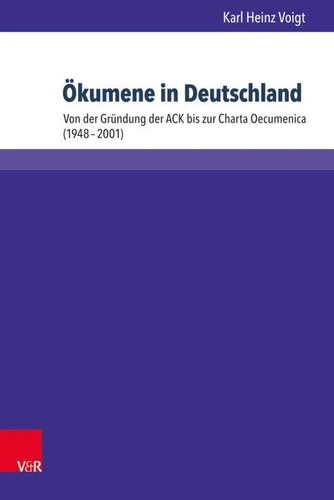Ökumene in Deutschland. Von der Gründung der ACK bis zur Charta Oecumenica (1948–2001)
Par :Formats :
Disponible dans votre compte client Decitre ou Furet du Nord dès validation de votre commande. Le format PDF est :
- Compatible avec une lecture sur My Vivlio (smartphone, tablette, ordinateur)
- Compatible avec une lecture sur liseuses Vivlio
- Pour les liseuses autres que Vivlio, vous devez utiliser le logiciel Adobe Digital Edition. Non compatible avec la lecture sur les liseuses Kindle, Remarkable et Sony
 , qui est-ce ?
, qui est-ce ?Notre partenaire de plateforme de lecture numérique où vous retrouverez l'ensemble de vos ebooks gratuitement
Pour en savoir plus sur nos ebooks, consultez notre aide en ligne ici
- Nombre de pages705
- FormatPDF
- ISBN978-3-8470-0417-2
- EAN9783847004172
- Date de parution15/07/2015
- Protection num.pas de protection
- Taille7 Mo
- Infos supplémentairespdf
- ÉditeurV&R Unipress
Résumé
In the authoritative literature on 19thand 20th-century ecclesiastical history, ecumenism is largely overlooked, and where it is noticed, it is almost exclusively in an international context. Ecumenism in Germanyonly crops up occasionally and in a marginal context. The author of this volume closes this gap by examining the whole complexity of inner German ecumenism by means of ecumenical hermeneutics of its history.
He portrays all the ecumenical partners, thus overcoming the notion prevalent in society - and even in some churches - of bilateral ecumenism. His objective thereby is to capture the richness, diversity and complexity of ecumenism in Germany, enhancing and pluralising its image so that within the different denominations and within German society as a whole an awareness may grow of the full breadth of ecumenism.
He portrays all the ecumenical partners, thus overcoming the notion prevalent in society - and even in some churches - of bilateral ecumenism. His objective thereby is to capture the richness, diversity and complexity of ecumenism in Germany, enhancing and pluralising its image so that within the different denominations and within German society as a whole an awareness may grow of the full breadth of ecumenism.
In the authoritative literature on 19thand 20th-century ecclesiastical history, ecumenism is largely overlooked, and where it is noticed, it is almost exclusively in an international context. Ecumenism in Germanyonly crops up occasionally and in a marginal context. The author of this volume closes this gap by examining the whole complexity of inner German ecumenism by means of ecumenical hermeneutics of its history.
He portrays all the ecumenical partners, thus overcoming the notion prevalent in society - and even in some churches - of bilateral ecumenism. His objective thereby is to capture the richness, diversity and complexity of ecumenism in Germany, enhancing and pluralising its image so that within the different denominations and within German society as a whole an awareness may grow of the full breadth of ecumenism.
He portrays all the ecumenical partners, thus overcoming the notion prevalent in society - and even in some churches - of bilateral ecumenism. His objective thereby is to capture the richness, diversity and complexity of ecumenism in Germany, enhancing and pluralising its image so that within the different denominations and within German society as a whole an awareness may grow of the full breadth of ecumenism.







